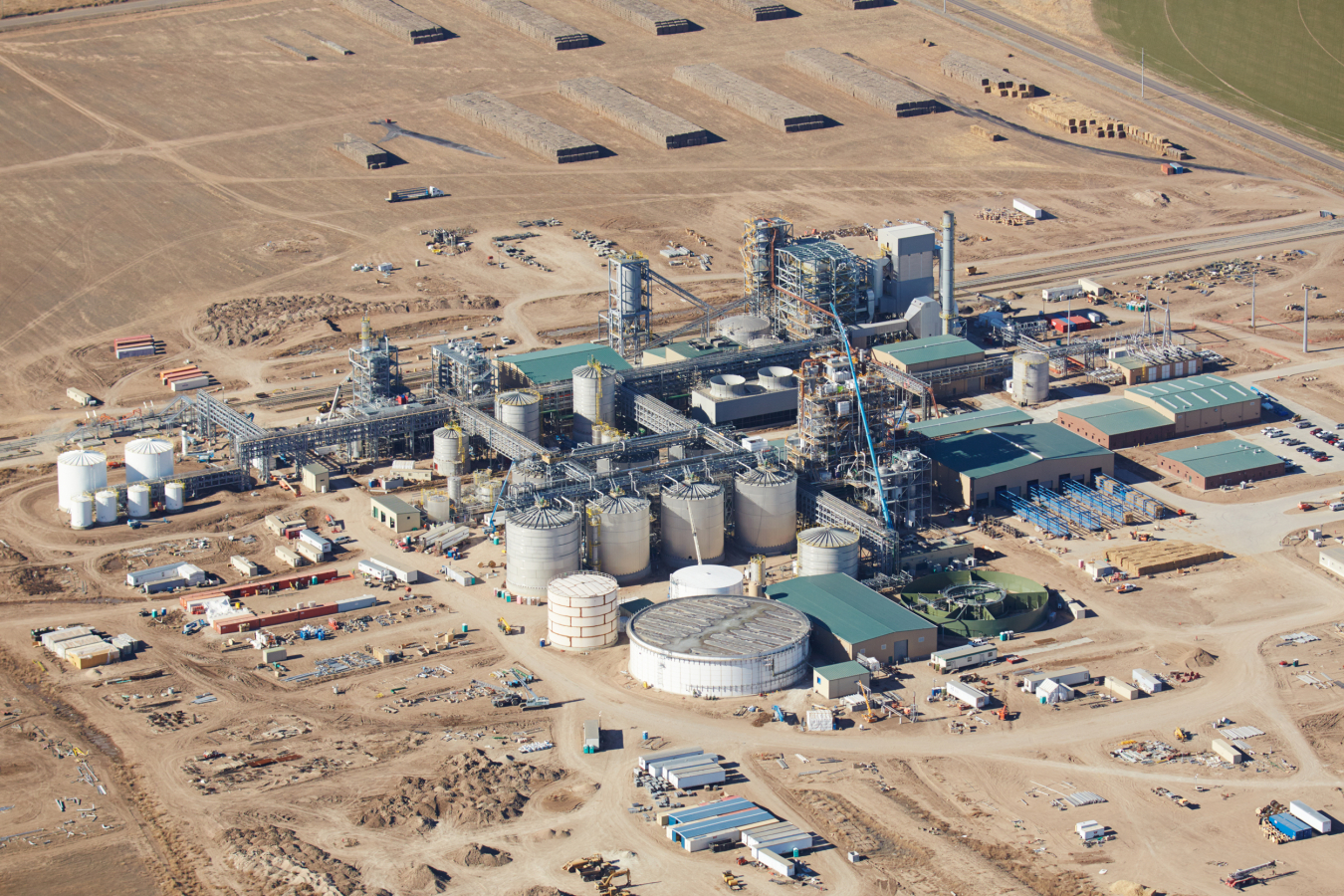The nation’s third commercial-scale cellulosic ethanol biorefinery celebrates its grand opening on October 17, 2014, in Hugoton, Kansas. The Abengoa Bioenergy Biomass of Kansas (ABBK) facility is the first of its kind to use a proprietary enzymatic h...
October 17, 2014
Photo courtesy of Abengoa
The nation’s third commercial-scale cellulosic ethanol biorefinery celebrates its grand opening on October 17, 2014, in Hugoton, Kansas. The Abengoa Bioenergy Biomass of Kansas (ABBK) facility is the first of its kind to use a proprietary enzymatic hydrolysis process which turns cellulosic biomass into fermentable sugars that are then converted into transportation fuels.
The plant will produce cellulosic ethanol from non-edible corn stalks, stems, and leaves harvested within a 50-mile radius of the plant. The cellulosic ethanol produced at ABBK will be sold into the ethanol commodity market and used to fuel light-duty vehicles. The state-of-the-art facility will feature an electricity cogeneration component that will generate up to 21 megawatts of electricity – enough to power itself and provide excess clean, renewable power to the local community.
The Energy Department has played an important role in advancing the cellulosic ethanol industry by supporting bioenergy conversion technology development from the lab to initial commercial-scale deployment. Last month, Project LIBERTY in Emmetsburg, Iowa, opened its doors, becoming the nation’s second commercial-scale cellulosic ethanol biorefinery. It is designed to produce 25 million gallons of cellulosic ethanol per year. Once they are fully operational, these facilities will have a combined production capacity of more than 50 million gallons of cellulosic ethanol per year.

